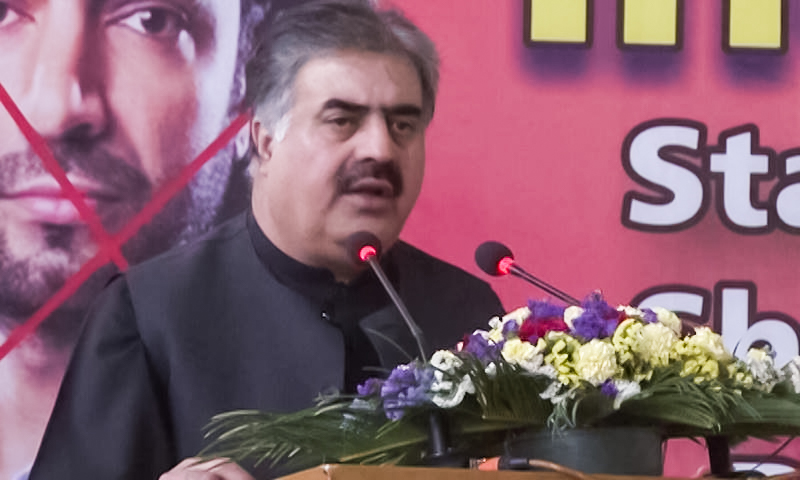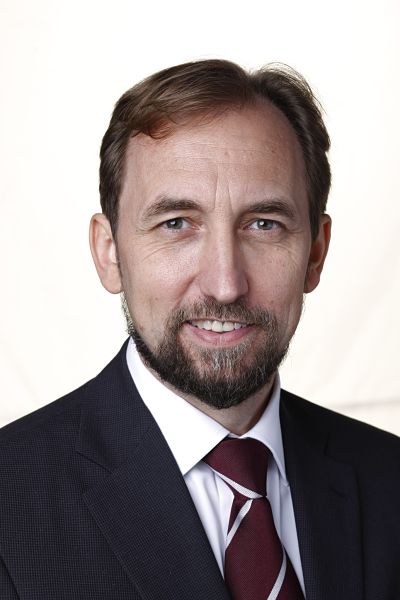August 14-15 were celebrated by Pakistan and India as respective independence days— the tenor of celebrations was as if both are rejoicing independence from each other rather than from the colonial master—Britain. This time Pakistan had dedicated its independence day to the ongoing freedom struggle in Indian Occupied Kashmir (IOK). And to re-rail the process of bilateral negotiations with India, Pakistan rolled out two bold initiatives: inviting India to talk on Kashmir in line with both countries’ obligations with regard to UNSC resolutions and to formalize both sides’ unilateral moratorium on nuclear testing into a bilateral arrangement—both hard nuts for India to crack. The latest letter written on August 19, invited Indian Foreign Secretary to visit Islamabad by the end of the month to discuss the Jammu & Kashmir dispute, with a view to finding a fair and just solution, as per the United Nations Security Council resolutions and aspirations of the people of Jammu & Kashmir. Though the ping pong of dialogue may commence soon, the evasive processes would continue for some time until India finds another excuse to suspend the talks, yet once again.
Dismissing Pakistan’s offer for a dialogue on Kashmir alone, India made it clear on August 13 that it would talk on “contemporary and relevant” issues. “India would welcome a dialogue on contemporary and relevant issues in India-Pakistan relations. At this time they include a stoppage of Pakistani support for cross border terrorism, infiltration of terrorists”, Ministry of External Affairs spokesman Vikas Swarup stated. However, former CM of IOK Omar Abdullah stated on August 19 that Pakistan was ‘not the architect of the present crisis: “They are not architects of the problem and they are not keeping it alive. It is our inability to address this anger that is keeping it alive.”
India has also dismissed an offer by Pakistan to send humanitarian supplies to IOK which has been under a virtual curfew for over a month. Offer to provide medical aid to victims of Indian state terrorism was also ignored. “I can only characterise its contents that propose sending supplies to the Indian state of Jammu & Kashmir as absurd,” Swarup said. India is not likely to agree on commencing nuclear talks.
In his quest to contest elections on religious ground and yet to form a BJP government in a Muslim majority state, Modi has lost whatever grip he had over the dynamics in IOK. To regain control, Modi has unleashed a reign of terror killing over 80, blinding over 120 persons and injuring over 6000—mainly youth. Occupation forces are hindering the smooth running of ambulances and functioning of hospitals.
The United Nations is alarmed at the violence in IOK, and has sought access to probe serious human rights violations. “We requested full and unhindered access to the affected population, to interview a variety of individuals on the ground, including victims, witnesses, security forces, and with access to relevant documentation,” UN High Commissioner for Human Rights Zeid Ra’ad Al Hussein said in a statement. “It is unfortunate that our sincere attempts to independently assess the facts in relation to reports of human rights violations have failed”, he added. Pakistan has a history of inviting Human Rights entities and giving them access to Balochistan even when insurgency was at its peak, the tradition would continue. Pakistan also has no issue in granting access to UN High Commissioner to AJK, however the problem is in IOK. In his letter to PM Nawaz Sharif, UNSG has appreciated Pakistan’s recent efforts towards peaceful resolution of Kashmir dispute, and has offered his good offices for resolving the dispute. During his visit to Pakistan (August 20-21), OIC Secretary General also expressed deep concern at the killing of innocent civilians in IOK and sorrow at the gross violations of human rights in IOK by the Indian occupation forces. He reiterated OIC’s position in support of the right of self-determination of the people of Jammu & Kashmir.
While Modi unleashed an unprecedented onslaught against Pakistan and supported insurgencies in Balochistan and Gilgit, the IOK chief minister pleaded for India and Pakistan to work together for peace in Kashmir. Indeed, Mufti’s conciliatory postures towards Pakistan, her statement that Indian national leadership is behind the woes of the Kashmiri people and her repeated public apologies for the killing of Burhan Wani and those protesting his death are reflective of ground reality.
Kashmiris observed a shutdown on India’s Independence Day to protest against Indian occupation, raised Pakistani flags and staged rallies in different parts of the valley in support of Pakistan. Moreover, IOK celebrated Pakistan’s Independence Day with traditional zeal and fervour; thousands of people defied a curfew and took to the streets in Kulgam, Islamabad, Pulwama, Bandipora and other districts.

On the eve of Pakistan’s Independence Day, several events were held in Balochistan including: University of Information Technology, Engineering and Management Sciences, Bugti Stadium and Balochistan Assembly as well as the Quaid-i-Azam Residency in Ziarat. Balochistan Chief Minister Nawab Sanaullah Zehri strongly rebuffed Modi’s recent claim that the province was suffering repression following a crackdown on insurgency. The chief minister said: “People of Balochistan are loyal and patriotic … they love Pakistan and will never support the nefarious designs of the country’s enemies.” “The people of Balochistan vehemently reject Modi’s statement on the situation in the province,” CM added. “The situation is very different as the people of Indian-held Kashmir desire freedom from India and Indian armed forces have been brutally and violently victimising them,” Zehri said. “But in Balochistan, the people love Pakistan and they want to live within the legal framework of the country”, he added.
Former Indian Foreign Minister Salman Khurshid has criticized Modi for making reference to Balochistan. “By raising Balochistan, the government is ruining its case on Azad Kashmir,” he said. Ashutosh Varshney, director of the Centre for Contemporary South Asian Studies at Brown University, said Modi’s public citation of the troubled Pakistani regions was “a huge stiffening of rhetoric against Pakistan — entirely novel”. “This is a recalibration” after Modi’s overtures to Pakistan and China failed to yield results, says Harsh V. Pant, a professor of international relations at King’s College London. It’s also a message to China: “You may be investing a lot in Pakistan, and think that CPEC is a done deal, but without India’s approval you might find it difficult to follow through.” “Modi’s statement is meant as much for Beijing as for Islamabad,” journalist Prashant Jha wrote in an opinion piece for the Hindustan Times. Ashok Malik, a fellow at the Observer Research Foundation, said the comments suggest New Delhi was preparing for protracted difficulties in Kashmir. “It’s also a bit of a message to China that we aren’t going to take [Chinese infrastructure plans] lying down,” he said.
Modi is trying to internationalise an issue that is mere creation of Indian interference since long, and the problem is now dying down. In the context of time and space, Modi is in a terrible lag. The ongoing implementation of CPEC segments in Balochistan are heralding a vivid transformation in its socio-economic landscape.
Modi drew a rightful rebuke from PM Nawaz Sharif’s adviser on foreign affairs, Sartaj Aziz, who termed it a proof that New Delhi was fomenting terrorism in the volatile province. “Remarks of Modi are aimed at raising the bugbear of human rights violations in Pakistan to divert attention from what his forces are doing in Occupied Kashmir”, Sartaj added.
The way independence days were celebrated in the IOK and Balochistan amply indicates the difference between the statuses of these two entities. The way Modi has gone about sabre rattling on India’s Independence Day, it has strengthened Pakistani common man’s faith in the necessity of creation of Pakistan.




